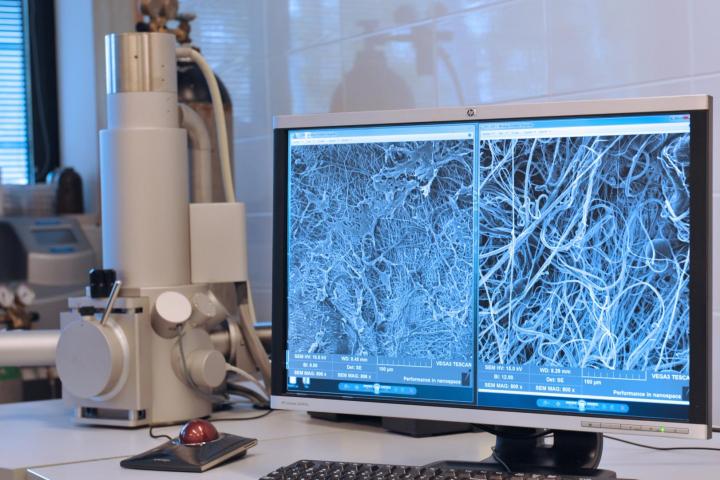
The project was divided into two parts. The first one was focused on the possibility of capturing the change of electrical quantities (capacitance and resistance) of nanofibers during their artificial treatment with cigarette smoke. The measurements showed that different samples can show a change in electrical characteristics after sputtering, especially in specific frequency ranges.
In the next part of the project, the focus was on capturing the molecules that would cause an eye-visible colour change in samples prepared from nylon fibre with added dye. These, according to the findings of the UCEEB experts, allow to signal and detect acidic air and water environments by turning them blue.
The prepared samples were able to repeatedly reversibly switch between their colored and colorless forms based on the presence and concentration of free H+ protons and the acidity of the environment in which they were located. The analysis of the presence of characteristic molecules in excess concentration should enable simple, rapid and inexpensive detection of the particles, which has great potential for practical applications.
ProNanoTech implemented this project with support from the South Bohemian Business Vouchers programme, announced by the South Bohemian Science Park.